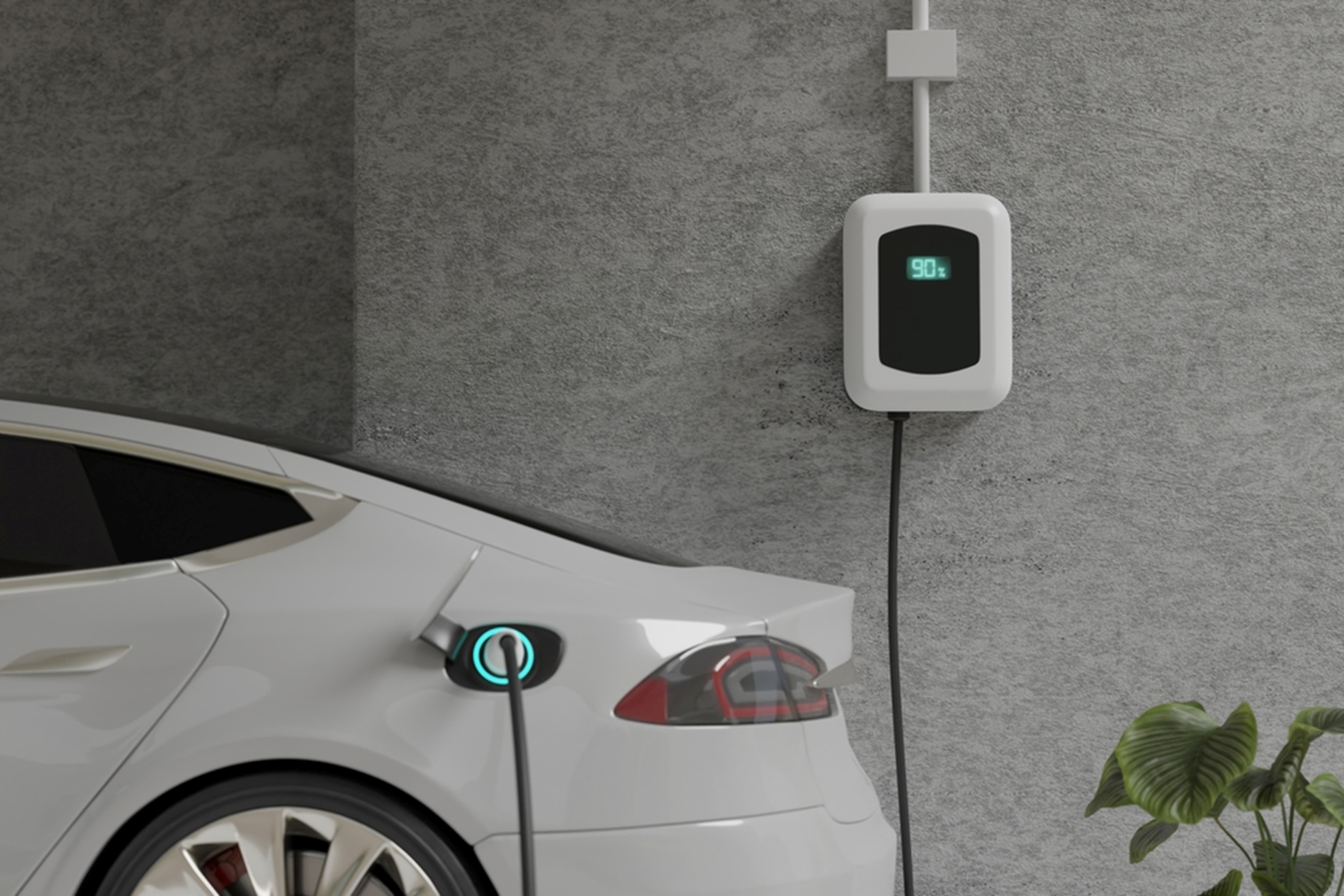

For over three decades, the Energy Saving Trust has been working to reduce CO2 emissions with a recent focus on electric vehicles and charging.
Join other savvy professionals just like you at CIHT. We are committed to fulfilling your professional development needs throughout your career
By Johnny Sharp
Transport remains a key topic for the Energy Saving Trust (EST), because, as they point out in the first line of their recent report, ‘Delivery programmes to decarbonise transport’, “The transport sector is the UK’s highest emitting sector and the only one whose emissions have increased since 1990.”
In the report, the organisation outlines the many ways they are working with the transport sector, but also highlight the insights drawn from recent research, and recommendations for action to keep the path to net zero clear with much of the focus on electric vehicles (EVs).

Image: EV charging at home to save money. Credit: Shutterstock.
EST has done much to make the switch to EVs a more attractive proposition for motorists and businesses. Their On-Street Residential Chargepoint Scheme (ORCS) has funded local authorities’ installation of residential charge points, while their commercial fleet decarbonisation consultancy services have given advice to public and private sector organisations.
Additionally, the organisation’s EVA accreditation is helping car dealerships and garages make the switch to selling and maintaining EVs, and they led the support body for the government’s Local Electric Vehicle Infrastructure (LEVI) fund, administering £56 million to local authorities to deliver an extra 2,400 public charge points in England during 2023-24.
While all this progress was being made, EST was developing important insights and recommendations that were published in the recent report. The Department for Energy Security and Net Zero commissioned EST to undertake the research and they made some interesting findings, particularly on smart charging.
Overall, it was found that “awareness and understanding of smart charging is fairly low amongst consumers, employees and fleet managers”, suggesting that for all the increasing popularity of EVs, there’s still plenty of work to do for a rounded education. The chief sources of advice on smart charging, meanwhile, were energy suppliers, online EV forums, and friends and family.
Research found that on the commercial side, fleet managers tend to focus on adopting EVs in the first instance, but options for optimising charging remain relatively low on their list of considerations.
Overall, the findings on smart charging were encouraging, however, with between 70 and 90 percent of domestic consumers opting for this cost-effective method, usually overnight. However, of those surveyed, only 12 percent of EV users who charge at work were able to schedule their charging, suggesting this is a benefit that more employers could be offering their staff as part of their own decarbonisation policies.
Included in the report was design and disability inclusion research EST undertook to explore the barriers disabled people face when using EVs, focusing on those who use wheelchair accessible vehicles (WAVs), and WAV dealerships. By 2035, there is projected to be around 2.7 million disabled drivers or passengers in the UK, meaning EV manufacturers need to bear their needs in mind more widely.
The EST report recommends that the conversion and adaptation industry should work together with disabled drivers and passengers to develop guidelines on accessible EV design. They also advocate changes to the zero emission vehicle (ZEV) mandate, which currently means that manufacturers will have to sell a set percentage of EVs among their vehicle sales before 2030. This will offer more certificates for wheelchair-accessible vehicles and encourage the production of EVs that can be converted to WAVs.
EST are also calling for an increase in the plug-in car grant to make electric WAVs more affordable. All of which backs up the report’s appeal for more government support. “If we are to reduce emissions at the speed and scale required to meet net zero by 2050, then the transport sector must be supported to decarbonise,” it concludes.
CIHT is currently seeking evidence from stakeholders involved in the planning, funding, deployment, or use of the EV charging infrastructure. Download the full call for evidence.
Read more on CIHT: Optimism for mass electric vehicle adoption in UK.
Image: EV charging at home to save money. Credit: Shutterstock.
Join other savvy professionals just like you at CIHT. We are committed to fulfilling your professional development needs throughout your career
{{item.AuthorName}} {{item.AuthorName}} says on {{item.DateFormattedString}}: